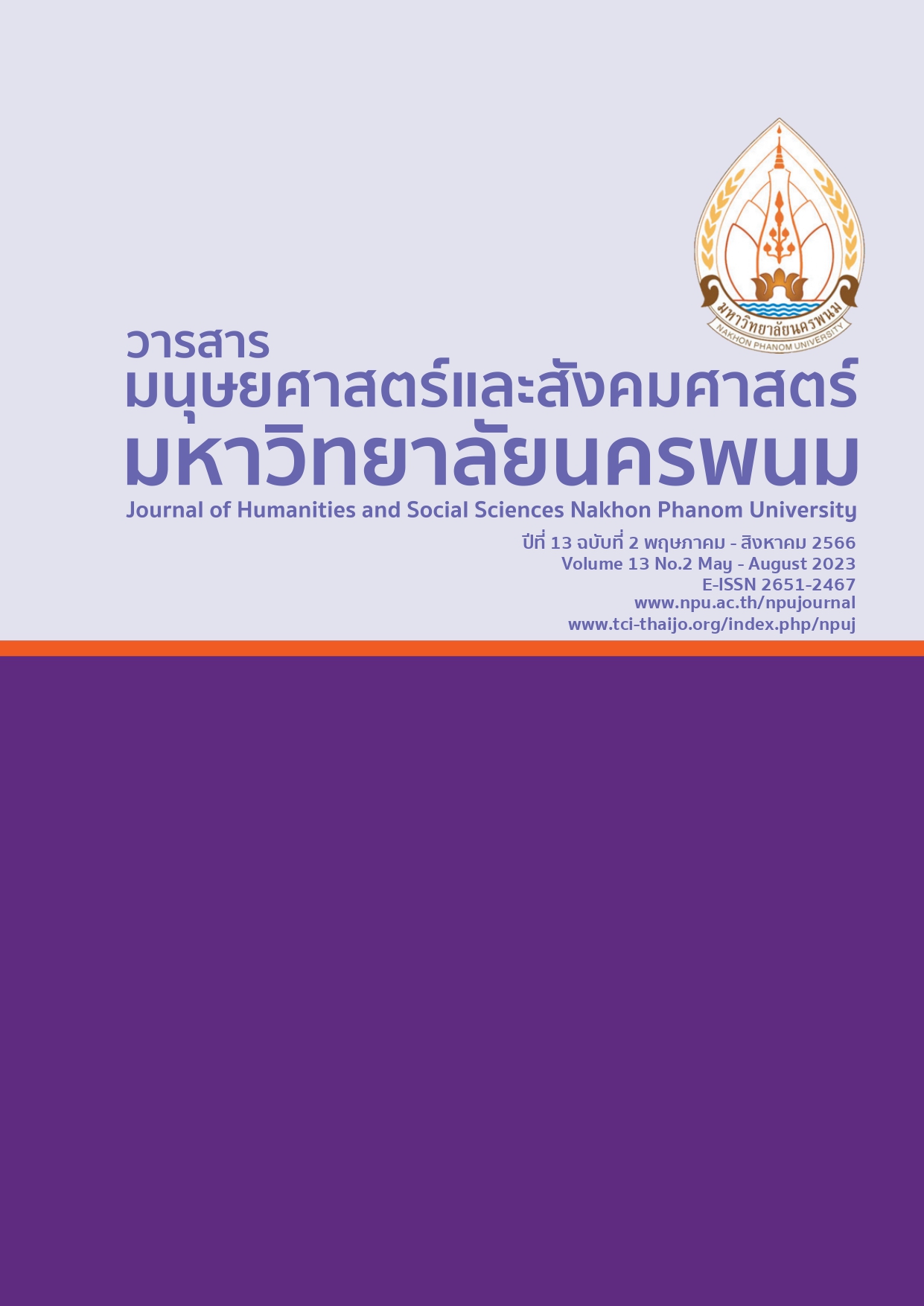Factors affecting the sustainability of community-based tourism in a Phu Thai village in Northeast Thailand
Main Article Content
Abstract
This research aimed to identify the factors affecting the sustainability of community-based tourism (CBT) in Phu village, Ban Pao sub-district, Nong Sung district, Mukdahan province. The data was collected by interviewing the leaders of community-based tourism group. The interview form was used with the sampling group who participated the community-based tourism and other villagers who did not participated and tourists who had previously visited the village were interviewed by phone. The researcher had stayed at the homestays in the villages and had an opportunity to frequently observe the village’s activities and participated in the informal discussion related to the community-based tourism with many villagers. The structure of CBT in Phu village is quite complex, consisted of a CBT leader, coordinators and seven functional groups divided according to the functions as follows: 1) service group, 2) food preparation group, 3) homestay group, 4) music group, 5) cultural show group, 6) ritual group, and 7) educational group and also the handicraft group in the village. There is a number of factors that affected the sustainability of CBT in Phu village: 1) the village is unanimous and which supports the working efficiency of CBT, 2) the villagers get both economic and social benefits from CBT, 3) the Strength of the leader, 4) the government support for CBT, 5) the quality of social relationships within the community, 6) the endurance of Phu Thai cultural identity, and 7) the high quality of experiences that provide to the tourists.
Article Details

This work is licensed under a Creative Commons Attribution-NonCommercial-NoDerivatives 4.0 International License.
References
Choenkwan, S. (2022). Factors Influencing the Sustainable Development of Homestay Tourism in Northeast Thailand. Research report. Bangkok : Thailand Research Fund.
Jaithiang, T. (2007). chon chāt phū thai [Phu Thai ethnic group]. Retrieved March 2020, from http://oknation.nationtv.tv/blog/seenam/2007/09/29/entry-2
Klongdee, M. (2009). A Study of Form of Network Establishment for Social Strength Through Yao Ritual of the Phuthai People in Mukdahan Province. Master’s Thesis. Mahasarakham : Mahasarakham University.
Patanachan, J. (2019). kānčhatkān kānthō̜ngthīeo dōi chumchon chumchon wat tān tambon bāng sadet ʻAmphœ̄ Pā Mōk čhangwat ʻĀng Thong [Community-based tourism management case study Wat Tarn community Pa-mok district Ang-thong province]. Master’s Thesis. Bangkok : Silpakorn University.
Piromvong, P. (2009). Identity and Tourism: A Case Study of PhuThai at BanPhu, Tambon Banpao, Amphor NongSong, Mukdahan. Master’s Thesis. Bangkok : Chulalongkorn University.
Rojrungsat, P. (2010). kānthō̜ngthīeo chumchon [Community tourism]. Bangkok : Odeon store printing.
Sarobol, S., U. Wongtubtim, S. Songphornwanit, B. Wongkam, and A. Punyoyai. (2003). kānthō̜ngthīeo dōi chumchon : nǣokhit læ prasopkān phư̄nthī phāk nư̄a [Community-based tourism]. Chiang Mai : The Thailand Research Fund.
Suansri, P. (2003). Community Based Tourism Handbook. Bangkok : Responsible Ecological Social Tour.
Thongma, W. (2004). kānthō̜ngthīeo dōi chumchon [Community Based Tourism: CBT]. Retrieved May 2020, from http://www.dnp.go.th/fca16/file/i49xy4ghqzsh3j1.doc


